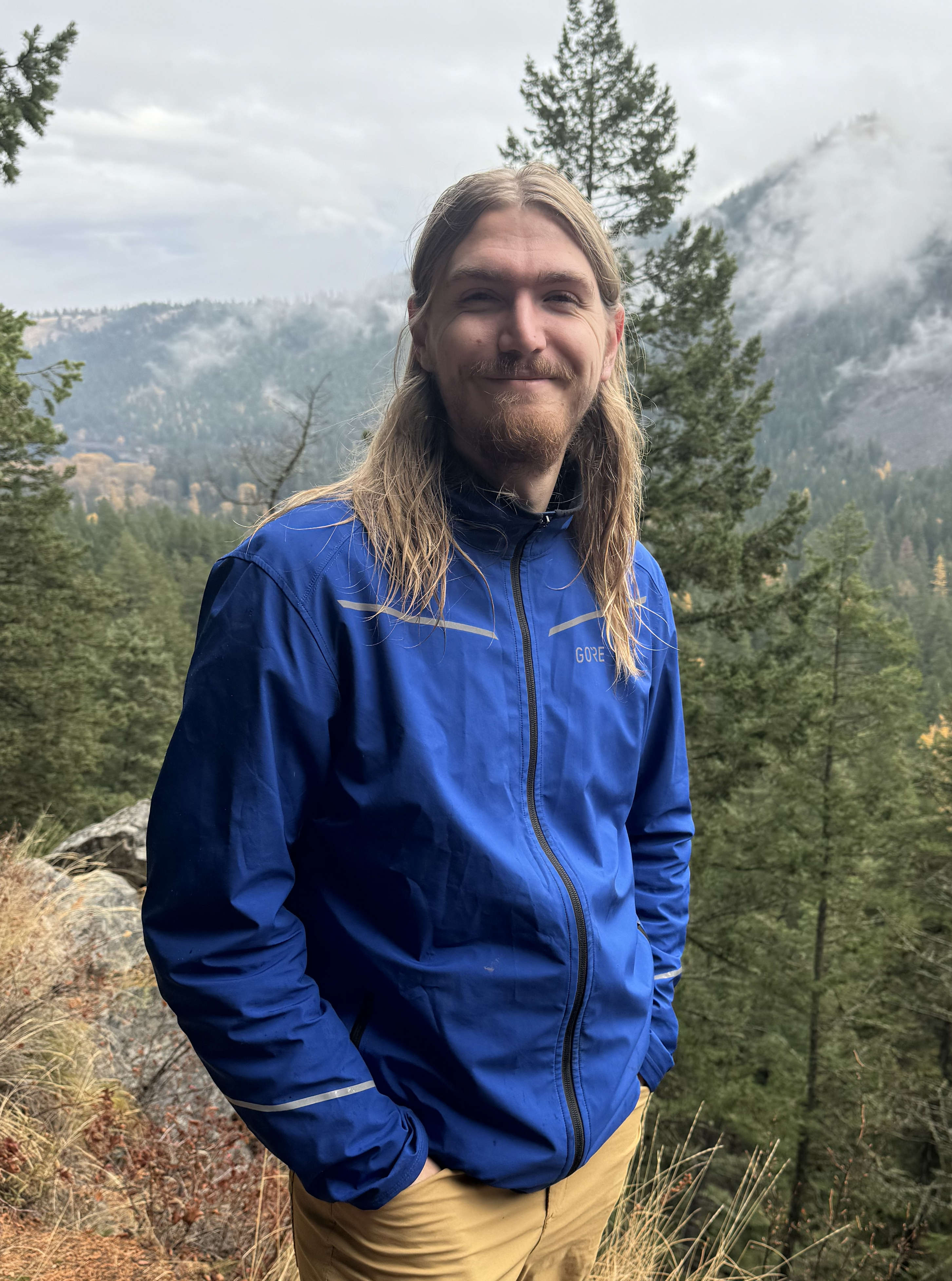Teaching
Teaching Statement
My teaching philosophy is centered on fostering a collaborative and inquiry-driven learning environment where students develop into confident, independent critical thinkers. My background in both pure mathematics and computer science uniquely positions me to help students build connections between abstract theory and practical application, ensuring they not only understand the material but also appreciate its relevance.
To achieve this, I structure my courses around active learning and peer collaboration. This approach encourages students to engage directly with the material and learn from one another. My classes are generally structed around a fast short lecture followed by group work engaging in the material presented. During the group work I move from table to table asking students questions about the general material and problems presented. This adaptive approach to teaching extends across the curriculum, from foundational courses like Calculus to advanced subjects such as Abstract and Advanced Linear Algebra.
Students learn best when they are motivated by interesting material and real world examples. My background as a Software Engineer at Google and my research in computational mathematics allow me to infuse my teaching with real-world context. My experience tutoring has given me patentice to help students in difficult situations and help them succeed.
Ultimately, my goal is to create an inclusive classroom where students feel empowered to ask questions, learn from their mistakes, and build a lasting appreciation for the power and elegance of mathematics. I am committed to continually refining my teaching methods to meet the needs of a diverse student body and to help them connect mathematical concepts to their own academic and professional aspirations.
Classes taught
Advanced Linear Algebra
Instructor, Washington State University, Department of Mathematics and Statistics, Fall 2025
Advanced linear algebra with an emphasis on practical matrix factorizations and special types of matrix classes. This class will cover the following topics:
- Theory and applications of vector spaces
- Eigenvalues, eigenspaces, similarity transformations of matrices, and diagonalization of matrices.
- Inner product spaces, orthogonality, and orthogonal projections
- Common decompositions including Singular value decomposition, LU decomposition, and Jordan canonical form.
- Special matrix types including normal matrices, symmetric matrices, and nonnegative matrices.
Abstract algebra
Instructor, Washington State University, Department of Mathematics and Statistics, Spring 2025
Abstract algebra with an emphasis on applications to teaching. This class covered the following topics:
- Groups including the major types of groups
- Morphisms of groups
- Operations on groups including product and quotient groups
- Counting with groups with Lagrange’s Theorem and Burnside's lemma
- Rings, fields, and vector spaces.
Discrete Mathematics
Instructor, Washington State University, Department of Mathematics and Statistics, Fall 2024
This class covered the following topics:
- Logical statements including conditional statements and qualifiers.
- Introduction to proof techniques through number theory.
- Sequences and mathematical induction.
- Set theory
- Counting and probability
- Graph theory
Calculus 2
Running Lab, Washington State University, Department of Mathematics and Statistics, Spring 2024
For this course, I ran a calculus 2 lab. This entailed running the lab twice a week, making a couple of quizzes, and helping grade. This class covered the following topics:
- Integration techniques.
- Sequences and series.
- Convergence tests for series.
- Intro to vectors.
Discrete Mathematics
Instructor, Washington State University, Department of Mathematics and Statistics, Fall 2023
This class covered the following topics:
- Logical statements including conditional statements and qualifiers.
- Introduction to proof techniques through number theory.
- Sequences and mathematical induction.
- Set theory
- Counting and probability
- Graph theory
Calculus 2
Running Lab, Washington State University, Department of Mathematics and Statistics, Spring 2023
For this course, I ran a calculus 2 lab. This entailed running the lab twice a week, making a couple of quizzes, and helping grade. This class covered the following topics:
- Integration techniques.
- Sequences and series.
- Convergence tests for series.
- Intro to vectors.
Calculus 1
Running Lab, Washington State University, Department of Mathematics and Statistics, Fall 2022
For this course, I ran a calculus 1 lab. This entailed running the lab twice a week, making a couple of quizzes, and helping grade. This class covered the following topics:
- Limits of functions.
- Formal definition of derivative.
- Derivative rules and techniques.
- Introduction to integration.
